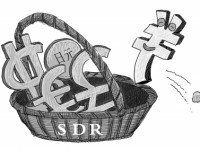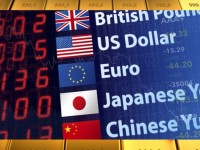Zhang Monan
Deputy Director of Institute of American and European Studies, CCIEE
Jun 20, 2016
In the long-term, a series of regional free trade agreements and the new global rules conform to China’s own economic restructuring and reform direction. China must enhance its level of liberalization in such areas as goods trade, service trade and investment, break through market barriers and get rid of institutional barriers. Making use of an open competition will promote the country’s upgrading in the global value chain.
May 18, 2016
Through new policies like the lowest customs threshold, intermediary responsibility, privacy, intellectual property rights, consumer protection, electronic signature and settlement of issues, the evolving global trade framework can promote interconnection and interflow in information, trade and industry so as to bring a new boom via the new round of trade globalization talks.
Apr 12, 2016
Once the US-European free-trade agreement is reached, the agreement will cover half of the global economic output and will include commodities and services worth of nearly $1 trillion, accounting for over one-third of total world trade.
Feb 22, 2016
Since the global financial crisis of 2008, the growth track and pattern of the world economy have undergone dramatic changes, and maintaining an easy monetary policy by the central banks will not be enough to remedy the situation. New “supply substitution” is needed to improve the productivity and innovative output of all factors, and to earnestly promote global economic growth.

Feb 04, 2016
Systemic risks like a new round of global currency devaluation and capital outflow could threaten economic stability and growth. In the past two years, the spree of short-term speculative capital and the RMB arbitrage rose and accumulated a lot of risks. A new global monetary management mechanism and a more stable global exchange rate structure are urgently needed.
Jan 20, 2016
As it acts upon the 13th Five Year Plan, Beijing must combine government fiscal investment, corporate R&D, industrial investment, venture capital, bank credit investment, capital market financing, science funding and more, to make a financial system with a full range of support to update China’s economy. An efficiently operating system will be key to the nation’s future competitiveness.

Dec 22, 2015
SDR status is only a fresh starting point for transforming China from a big financial entity into a strong financial powerhouse. By adding a currency from the developing world, the SDR much better reflects the functions of emerging economies in global economic and financial affairs.
Dec 18, 2015
As the labor supply declines and labor cost increases, China must strengthen the supply front to really create new supply and efficiency dividends through reform. Reform on the supply front requires the improvement of capital-formation efficiency for the next five years.

Dec 02, 2015
Now that the IMF has made the RMB its fifth reserve currency, new attention is being paid to the risks associated with cross-border capital flow. Managing these risks requires active participation in global governance and rules making, in particular global exchange rate reform, balance of payment adjustment regime, capital flow management and the reform and coordination of monetary and financial policies on a global scale.
Oct 22, 2015
Open to insiders and restrictive to outsiders, as they lower trade barriers among member economies, regional FTAs tend to build higher trade barriers against non-member economies. Often tools for working around loopholes in the WTO, such regional agreements buck the trend toward globalization.
